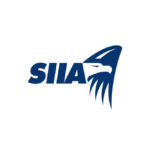USBenefits Insurance Services (USB) was recently asked if, and how, the No Surprises Act (NSA) impacts stop-loss coverage. It is our assessment that the responsibility of managing claims in accordance with the NSA falls upon the employer’s Third-Party Administrator (TPA). The following quick snapshot was authored by Steven Schouweiler, and by no means is intended to be comprehensive nor serve as a legal reference. Therefore, please contact your TPA and/or broker for additional information.
Under the new law (effective January 2022), the NSA offers protection for nearly all out-of-network medical services where surprise bills are a regular occurrence. Under the NSA, out-of-network providers are prohibited from billing patients more than their in-network cost-sharing amounts for:
- All out-of-network emergency facility and professional services
- Post-stabilization care at out-of-network facilities (until the patient can be safely transferred to an in-network facility)
- Air ambulance services (transports) in emergency and non-emergency situations
- Out-of-network services delivered at, or ordered from, an in-network facility
Out-of-network providers can bill patients above and beyond their in-network cost-sharing amounts, but only if they notify the patient of their out-of-network status and obtain the patient’s written consent to receive out-of-network care more than 72 hours before the care is delivered. However, this exception does not apply to the following services:
- Emergency medicine/emergency services
- Anesthesiology
- Pathology
- Radiology
- Neonatology
- Diagnostic testing
- Any services provided by assistant surgeons, hospitalists, and intensivists
The No Surprises Act covers a wide swath of emergency services, with one exception: regular ground ambulance services. As of now, these services are not bound by the provisions of the new law.
Based on this summary, the responsibility falls on the provider and “Plan” to manage with out-of-network charges. If the provider does not give adequate notice, the payor is not responsible. If the patient does not utilize in-network services without reason and outside of emergency situations, when in-network was not available, then the patient is responsible.
The TPA is responsible for adjudicating claims within the terms of the of the Plan. The carrier’s responsibility is to be sure the claims submitted have been properly adjudicated, and if excess payments are made outside of the Plan and NSA, then they are denied and responsibility lands with the TPA and likely the Plan.





